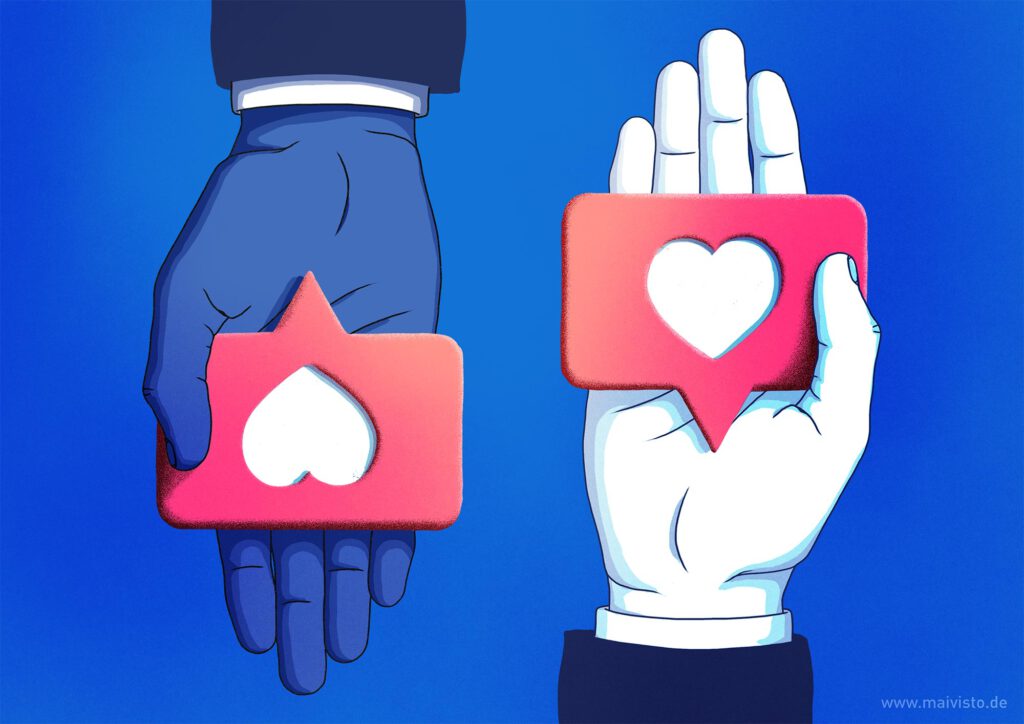
A student said she doesn’t share her work and ideas on the Internet. She is worried that someone will use them elsewhere without her knowledge, even making money from them. We have only two options here:
An idea that is not shared is dead
One is to keep our works and ideas to ourselves. They stay in the desk drawer where no one sees them. Or we take the risk that they will be “stolen” by people as soon as we share them with the world. This can actually happen. Followers pointed out that my illustrations were for sale on a t-shirt without my permission. Illustrations are also regularly used on websites without crediting me as the creator. Nevertheless, I think: An idea that is not shared is dead.
We start hoarding when we keep our ideas only for ourselves and don’t share them with the world. And hoarding is pure poison for creativity. We think we have such a good idea that it will be taken away from us. But what is a good idea? Could we even judge that on our own? How often are we surprised when presenting our logo designs, illustrations, or advertising campaigns? The idea we thought was good doesn’t catch on with the audience, while the other one we put together in a minute has touched people.
“Having good ideas is not difficult. Recognizing that it is one is the tricky part”
Ulrich Leschak (professor in brand and marketing communication)
It’s usually hard for us to decide whether our idea is good or bad. Pathetically speaking, the moment we withhold a creative work from the world, we rob it of its identity.
So most of the time, we won’t know if it’s good or bad as long as we keep it to ourselves. But that is not the real danger. If we don’t let go of ideas, good or bad, they haunt us. They stick in our heads. But to work creatively, we have to make room for something new. Out on a sheet of paper, then off into the world.
“Don’t worry about people stealing your ideas. If they aren’t good, you’ll have to ram them down people’s throats”
Howard Aiken (a pioneer in computing)
Perhaps it helps to realize that if an idea is good, we can’t prevent it from spreading. It should, and for us, the advantages clearly outweigh the disadvantages. With our work, we can reach people worldwide, get into conversations, give interviews, and find people who will pay us to continue in the same way. In contrast, what are the apparent annoyances of someone “stealing” our work? Apart from the fact that there are legal possibilities, which we should also use if necessary, it’s a compliment, albeit unwanted.
So, take a risk. Ideas come to us. They don’t belong to us
They can only steal your work. But not your vision, not your unique view of the world. Our work is just a byproduct of who we are, and we depend only on our creativity.
So, take a risk. Ideas come to us. They don’t belong to us. We just keep our eyes, minds, and arms open. They exist to be shared. We’d still live in caves and pick berries if they weren’t.